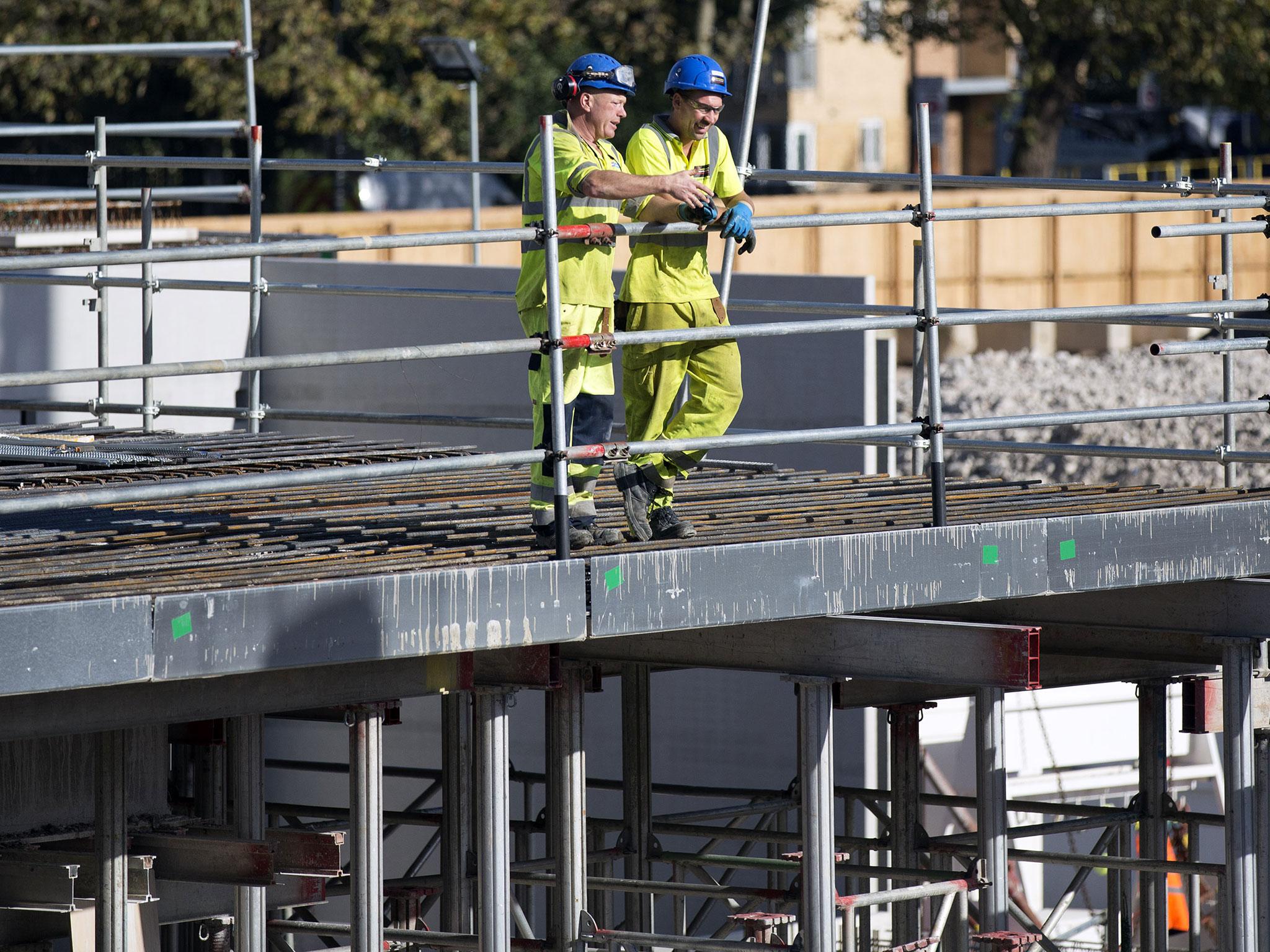Freedom of movement 'vital' to UK construction post Brexit, industry experts warn Government
The warning comes from a coalition of professional bodies representing the construction and built environment sectors.

A coalition of professional bodies has warned the Government of a construction crisis if access to skilled workers cannot be secured following UK’s vote to leave the EU.
The UK construction industry relies heavily on European labour. Nearly 12 per cent of the 2.1 million construction workers come from abroad, according to the Office for National Statistics.
The Royal Institute of British Architects (RIBA), the Royal Institution of Chartered Surveyors (RICS), the Chartered Institute of Building (CIOB) and the Royal Town Planning Institute (RTPI) outlined their concerns in a joint statement to David Davis, the Brexit Secretary.
The group representing Britain’s architects, surveyors, planers and builders said the free movement of labour within the EU has been “vital” to the growth and flexibility of the construction sector.
“We are in the grip of our worst construction skills crisis in almost 20 years,” Amanda Clack, RICS president, said.
“There is a real concern within our industry that if access to a skilled workforce is further restricted, Britain could stop building. My colleagues and I would urge Government to keep this at the front of their minds when they come to negotiate our withdrawal from the EU,” she added.
The letter outlined five other priorities for the Government to focus on during the post referendum negotiations with the EU. These include access to european markets and colloborative research that the EU has enabled and promoted.
The Government has yet to establish a clear immigration plan.
Home Secretary Amber Rudd is expected to be briefed on a hardline plan to curb immigration after Brexit put forward by the think tank Migration Watch.
The scheme – under which only highly-skilled workers with well-paid job offers would be allowed into Britain – would aim to slash EU immigration by as much as four fifths.
At the weekend, Amber Rudd confirmed she was considering work permits, after the idea of an Australian-style points-based system was rejected.
The output of Britain’s builders flatlined in July according to the first official data on construction, covering the period in the immediate wake of UK's decision to leave the EU.
6 ways Britain leaving the EU will affect you
Show all 6The Office for National Statistics (ONS( had estimated that construction, which accounts for around 6 per cent of the UK economy, contracted in the first two quarters of 2016, dragging on overall GDP growth, although new revisions now suggest output grew in the first quarter.
“While the initial post-Brexit slump appears to have stabilised, it is important that the Government focuses on maintaining infrastructure and construction investment leading up to and after Brexit, ensuring the right conditions are in place to attract infrastructure investors in all sectors across the UK,” Amanda Clark said.
“As we approach an unprecedented period of uncertainty, it is fundamental the government prioritises infrastructure and it remains at the forefront of maintaining a strong economy,” she added.
Subscribe to Independent Premium to bookmark this article
Want to bookmark your favourite articles and stories to read or reference later? Start your Independent Premium subscription today.

Join our commenting forum
Join thought-provoking conversations, follow other Independent readers and see their replies